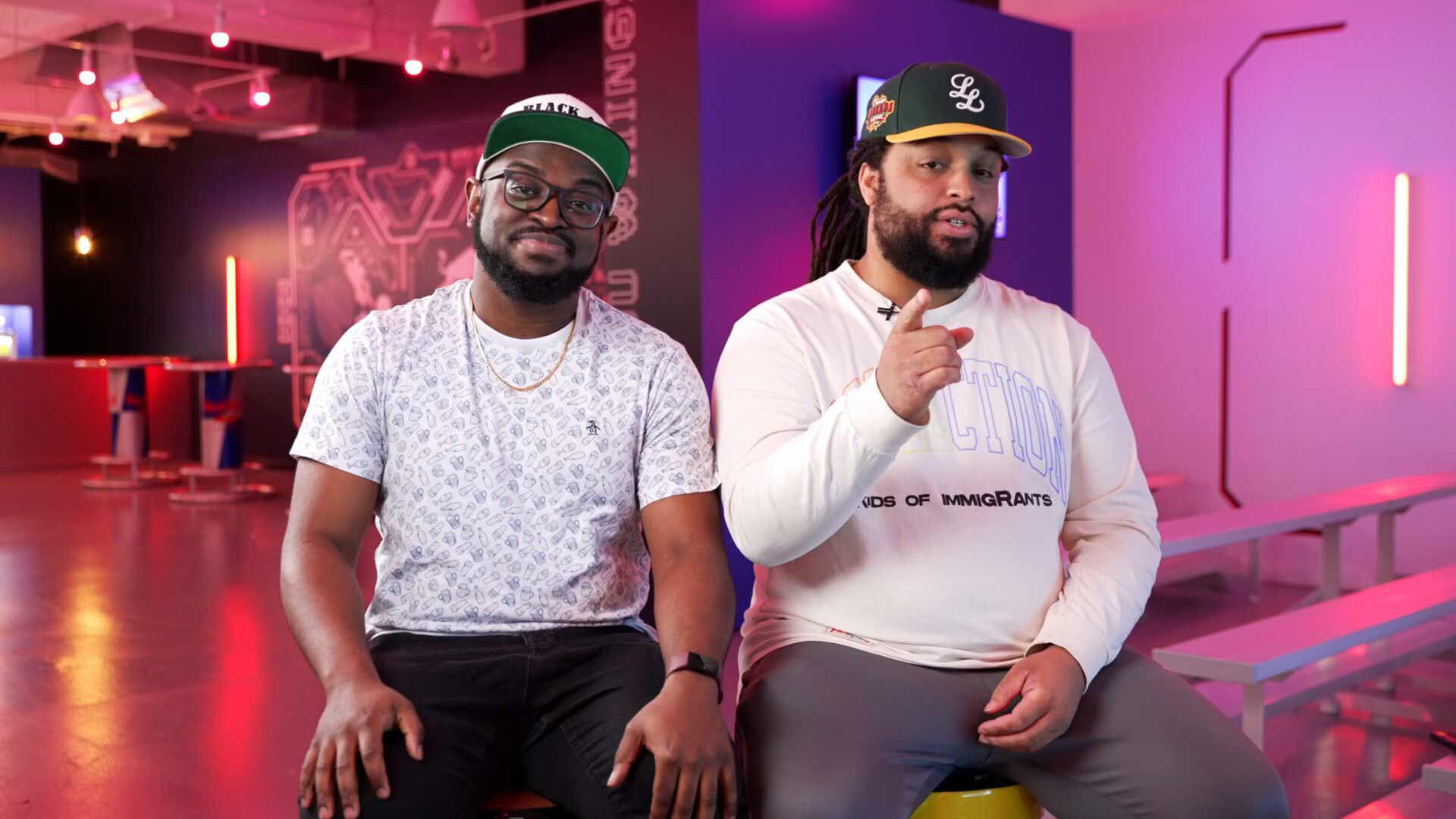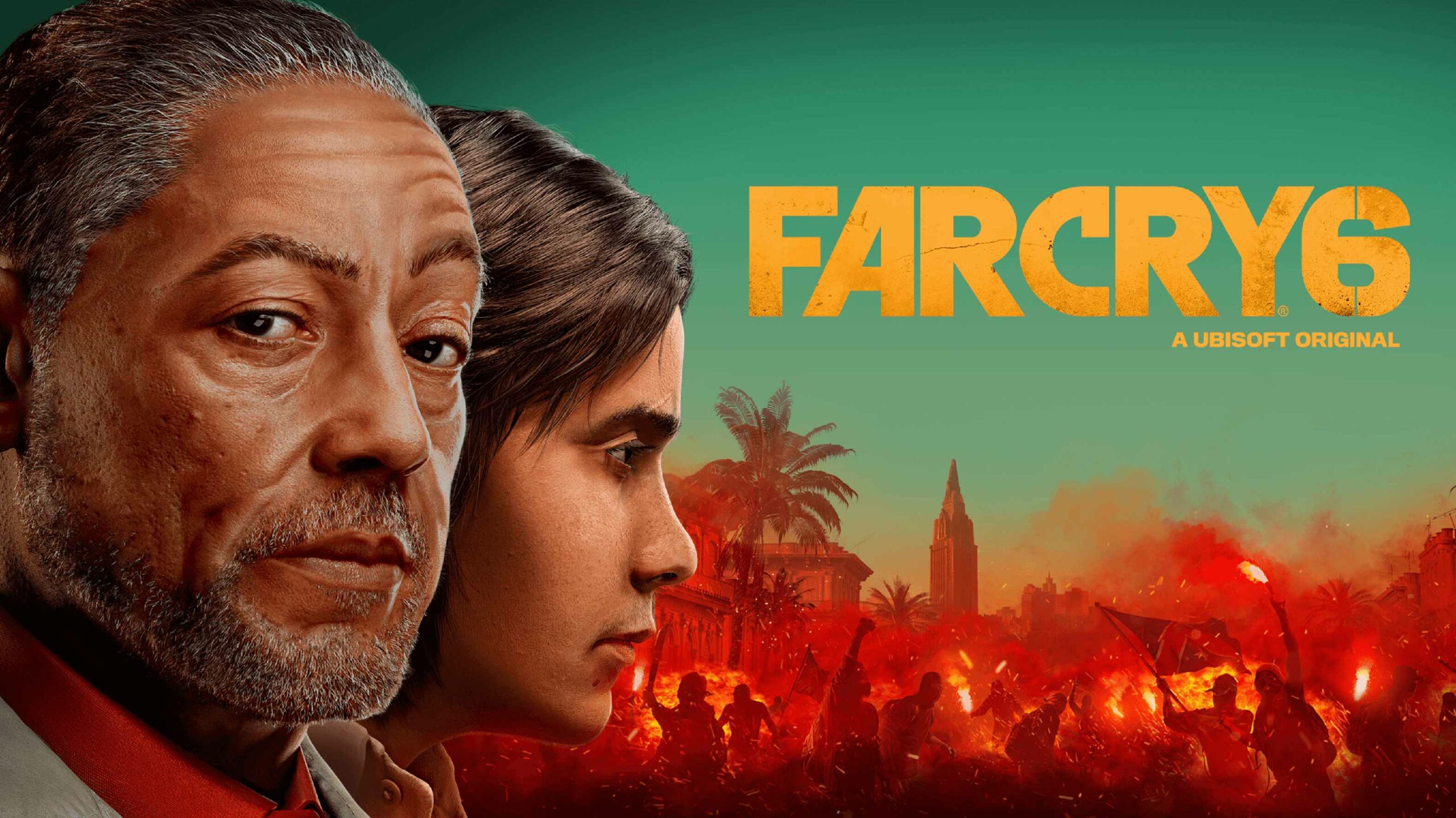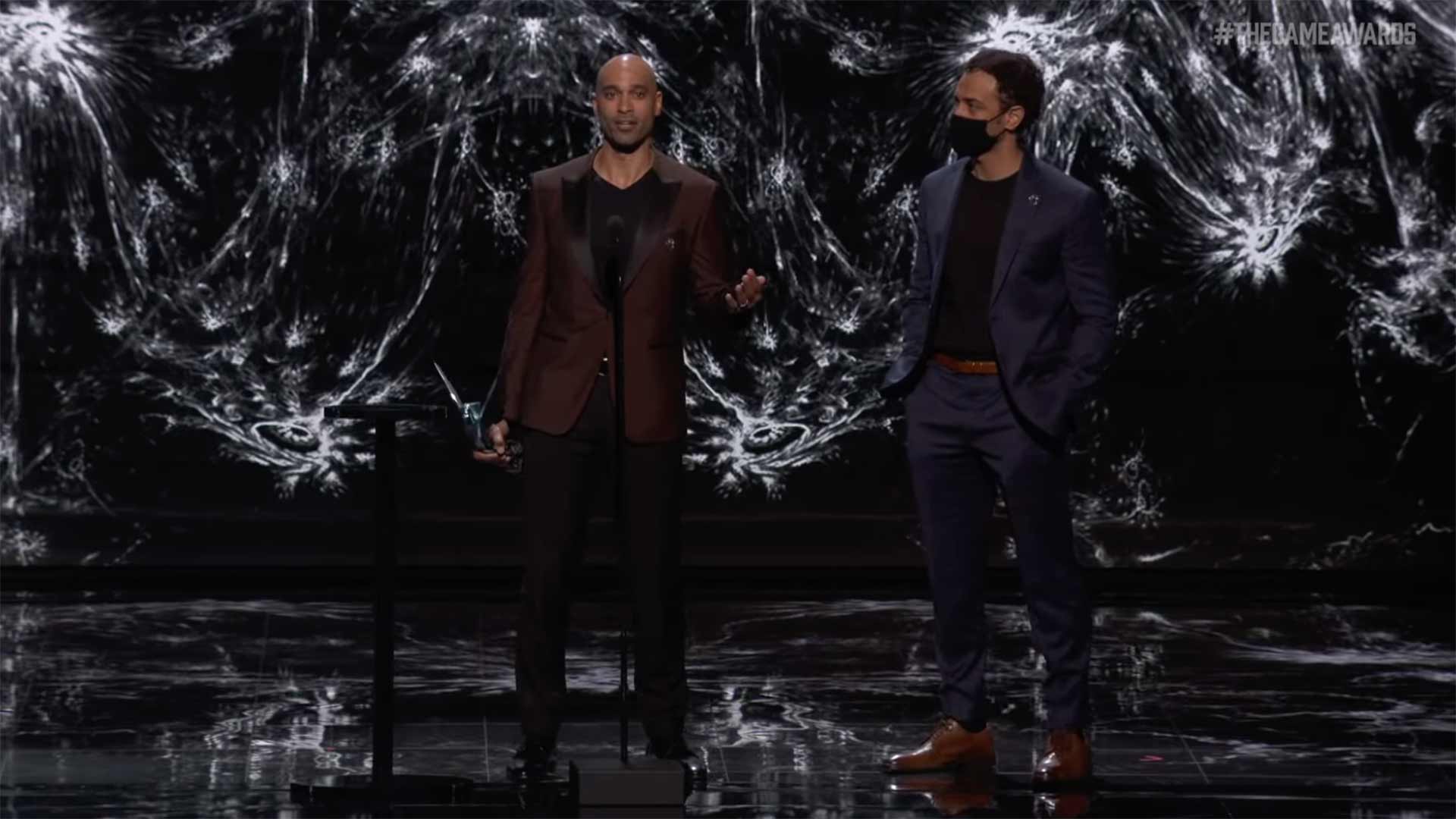Kurston Timothy wears many hats.
As employee resource group (ERG) and partnership coordinator at Ubisoft, he leads support initiatives for diversity groups within the company, including those from the Black, LGBTQ+ and Latinx communities.
That’s a full-time job in itself, but he also spends a great deal of time overseeing Mynno, an organization he founded last year to help uplift and foster diverse talent in and around the industry. This includes, but is not limited to, BIPOC (Black, Indigenous, and people of colour) developers, content creators and fans.
Mynno managing director Omar “Meez” Williams (left) and Timothy (right)/Image credit: Mynno
“I wanted to create this because unfortunately, in these spaces, minorities aren’t ever seen and respected,” Timothy, a Black Canadian himself, explains. “The word ‘Mynno’ is actually a double meaning — meaning number one, “Mynno” being short for ‘minorities,’ and meaning number two [being] kind of a riff on minnow being the small fish in the big pond, [and] small fish being minorities.”
However, Mynno itself is an evolution of his previous, the Black Game Pros initiative, which he founded in 2019 alongside his mentor, Leon Winkler (Ubisoft HQ’s director of international events).
“I was using the name [Black Game Pros] to inspire Black individuals within the industry, but I had an ‘aha’ moment last summer — ‘Black Game Pros is good, but I know I could be doing more,’ Timothy explains.
“I have a lot of friends and marginalized groups, a lot of friends that are minorities, and I know that everyone needs support. And I knew that with the platform that I have, there was a huge chance that I could be that person to kickstart the support. So we decided to rebrand — ‘let’s go with it and see what happens, kind of like a huge leap of faith.’ And so far, it’s been very successful […] We’ve been able to help out more people, which was the most important thing for me.”
This includes a Halo Infinite tournament last December in partnership with Red Bull, Xbox Canada and the women-led inclusivity group Paidia Gaming, regular promotion of BIPOC talent on its social media channels and, on February 27th, a guest-filled ‘Celebration of Black Excellence’ Twitch stream hosted by Timothy and Canadian gaming host Camille Salazar Hadaway.
Overcoming obstacles
All of this diversity and inclusion work at both Ubisoft and Mynno brings everything full circle for Timothy, who says he’s always loved gaming and wanted to break into the industry. Of course, that’s easier said than done.
“Getting into high school, mainly everyone I knew — I come from an art background — was going into either film or graphic design. But no one really talked about game development,” he explains.
This led him to study Art Design Foundation at Toronto’s George Brown College, where he later would join the game development program after speaking to its director. For personal reasons, though, he had to drop out, leading to what he calls was a lengthy period of “grinding” from 2010 to 2017.
“[I was] doing portfolio work, applying for jobs to see how can I get into the industry, whether it was in production or [quality control], then eventually I landed my job at Ubisoft [Toronto], and the rest is history.”
While things eventually worked out, Timothy notes that not completing that game development program is the main reason why it took so long to break into the industry.
“The biggest obstacle was not having that expensive piece of paper. And that was the biggest hurdle that I had because I had the technical know-how — I had the skillset I needed for a lot of the entry-level jobs,” he explains. “But when I would apply, my resumé would say a one-year program, and they know it’s two- or three-year program, so when it came time to actually meeting someone face to face, they were like “‘no, we’re looking for graduates, we’re looking for students, blah, blah, blah.’”
We’ll be showcasing some games created by black developers, spotlighting industry folk making a difference in our community and we’ve invited a panel of all star guests to speak about the black experience in gaming!
Spread the word, tell a friend. See you soon!#WeAreMynno
— Mʏɴɴᴏ (@wearemynno) February 25, 2022
Now that he’s been at Ubisoft for nearly five years, he says he’s seen other developers go through similar struggles.
“[It’s] funny now in hindsight because I know a lot of people that I’ve worked with over the years that don’t have the education in their respective field, but they’re amazing at what they do because of the skill set that they have,” he says. “So I’ve been a big advocate for showing improvement — you don’t necessarily need to finish school or go to college or university to get into game development as long as you have the skill set to do so.”
While this applies to post-secondary education, Timothy also noted how to go about creating equal opportunity earlier on.
“We need to make sure that we’re having programs readily available for Black students in our communities, whether it’s community centres, after-school programs, or even in school itself. Growing up, I didn’t have any tech-related background at all, it was just more so what I learned from my dad who was in tech, and my peers, who were also getting into the internet. Because we grew up with the internet, we didn’t grow up on the internet — that’s the difference between my generation and the generation after.”
Naturally, tech-savviness can help kids better learn STEM (science, technology, engineering, and mathematics) subjects at younger ages.
“Right now, I know that some schools are teaching programming in like Grade Six and Seven, and programs like that. But if we could get into more industry-ready skills — like yeah, programming is great, but 2D art, 3D art, level design, Level development, more opportunities like that — that are readily available from mentors and organizations that have the bandwidth to do so, I think that’s the way we get people set up for success and gets it done a lot earlier.”
Image credit: Entertainment Software Association of Canada/Nordicity
All of this, in turn, can help improve diversity at gaming companies, Timothy notes. According to the Entertainment Software Association of Canada’s 2021 Canadian Video Game Industry, 56 percent of Canadian game companies have not yet developed an equity, diversity and inclusion (EDI) program. When asked how to improve those numbers, Timothy said it’s all about being both smart and sincere.
“Do it for the right reason, and do it honestly. Because a big thing right now is that you want to hire people with diverse backgrounds, but you also want to hire people with diverse skill sets? That’s one thing that we always keep forgetting,” he says. “A big example of that is we have people who know how to do the job, but because they’re ‘classically trained,’ we don’t want to give them the opportunity.
He proceeds to tell the story of a friend he now works with who started off in retail.
“He worked at a used game store, and he had impeccable management skills, impeccable leadership, but he didn’t have that ‘project coordinator’ or ‘project manager’ title before in the past. But what he was doing at a retail level is exactly what the position needed,” says Timothy. “So there’s no reason to not hire in someone with that skill set, and train them up for what else they need, what else they’re lacking, whatever it is. And let’s say you’re applying for a job [and] you have six out of the 10 requirements — that doesn’t make you less desirable than some with eight or nine out of 10. Those last four pieces that you’re missing, you can learn on the job.”
Timothy himself demonstrates this quite well. During his time as a development tester, he’s contributed to two massive games, 2020’s Watch Dogs: Legion and 2021’s Far Cry 6, and has learned much along the way. That would have been true during “normal” development, but he and his teams have had to adapt even more during the COVID-19 pandemic. Shipping any game is commendable in itself, let alone two big AAA open-world titles in the span of a year while a global health crisis raged on. According to Timothy, that work really can’t be understated.
Far Cry 6 is one of two recent games that Timothy worked on (Image credit: Ubisoft)
“That’s the biggest thing. Online, there’s been a lot of dialogue, ‘Oh, I can’t believe this game’s delayed, and that game’s delayed.’ Shipping a game during a pandemic is hard. Making a game at home is hard. Even though we are remoting into our desktops and some of us have desktops at home, the interconnectivity between teams and people is not there,” he says, referring to the challenges of communication remotely versus in-person.
“But I’m lucky that both the teams I worked on were really great, and we made stuff happen. For those who have been making games from home, they know the struggle. And it’s really cool now to see a lot of organizations flip to work from home because we made it work.”
The importance of representation
Getting more BIPOC people into the gaming industry will, naturally, have an effect on the kinds of characters that are being created.
For Timothy, that presents the opportunity for representation in gaming that he never had as a kid.
“My biggest thing [is] inclusion over everything — diversity over everything. Because I can’t tell you what it feels like to play a game and see representation — that’s still new to me. Growing up in the ’90s, early 2000s, there was no prominent black character, prominent POC characters. You had, like, Barret in Final Fantasy VII, which is like your typical loud, angry Black dude. And we didn’t really have much after that until like years and years and years later. You have Alyx from Half-Life 2, then it’s just really few and far between.”
Thankfully, that’s slowly improving over time thanks to games like 2020’s Marvel’s Spider-Man: Miles Morales, whose eponymous hero was a half-Black and half-Latino, and last year’s Deathloop, featuring Black protagonist Colt Vahn and Black antagonist Julianna Blake.
“So today, it’s people like me who grew up in that era that are now the ones making the games and making sure that you see yourself in the game that you’re playing — that’s really, really important,” says Timothy.
“Because you look at people when they’re [using] ‘create-a-character’ — they want to create a character that looks like them. But what if there’s a character already that looks like you? Not every game offers a create-a-character option, and even then, create-a-character options nowadays are not great. They’re getting better, but they’re not that great, particularly for skin tone, and hair and facial features. It’s getting there, but having characters that look like you is important and integral to the growth of a gamer.”
To Timothy’s point, The Verge even put out a piece mere hours after we spoke about how the critically-acclaimed new game Elden Ring‘s character creator has minimal options for Black players.
“It’s the awareness of, ‘hey, all people are included in this game.’ You don’t need to have a typical, ‘white, blond-haired, blue-eyed hero’ — here is a Black woman with nice big, wavy hair, here’s an Asian woman with a strong background, and so on and so forth,” he adds. “So developers like myself who have grown up in that era are putting that into the forefront to make sure that the next generation knows that they’re seen and they’re heard.”
Timothy notes that a more diverse pool of developers can lead to more unique, standout experiences. He shouts out one of his favourite games from last year, Ember Lab‘s Kena: Bridge of Spirits, the gorgeous action-adventure game about a young girl who helps guide spirits. The California-based studio is led by two Black brothers, Mike and Josh Grier. Timothy also praised English developer 3-Fold‘s Before I Forget, a game about an Indian woman whose narrative designer, Chella Ramanan, is also Black. “It’s really cool to know that there are Black people in these spaces, in these roles, creating the opportunity to play these games.”
Mike and Josh Grier accept The Game Award for Best Indie Game for Kena: Bridge of Spirits at The Game Awards 2021 (Image credit: The Game Awards)
Of course, let’s not forget Timothy’s own diversity and inclusion efforts. In addition to his regular work at Ubisoft, he says Mynno has some “really cool” plans for International Women’s Day on March 8th, as well as yet-to-be-revealed summer events. And beyond other Toronto events like the Halo tournament, he hopes to expand into other parts of Canada, like Montreal, Vancouver and Calgary with special region-specific programming.
But there’s one thing in particular that he hopes to do with Mynno, although he remains coy on what it actually is. “And then, Lord willing, I’m looking to give back to the community — I won’t say what that means just yet, but I’m looking to give back to the community tenfold if certain things worked out the way I intend them to.”
This interview has been edited for language and clarity.
February is Black History Month, an annual observance of the legacies of Black communities in Canada, the U.S., and other countries. More information can be found here. To stay up to date on Mynno, specifically, you can follow the organization Twitter and Twitch.
Image credit: Mynno





